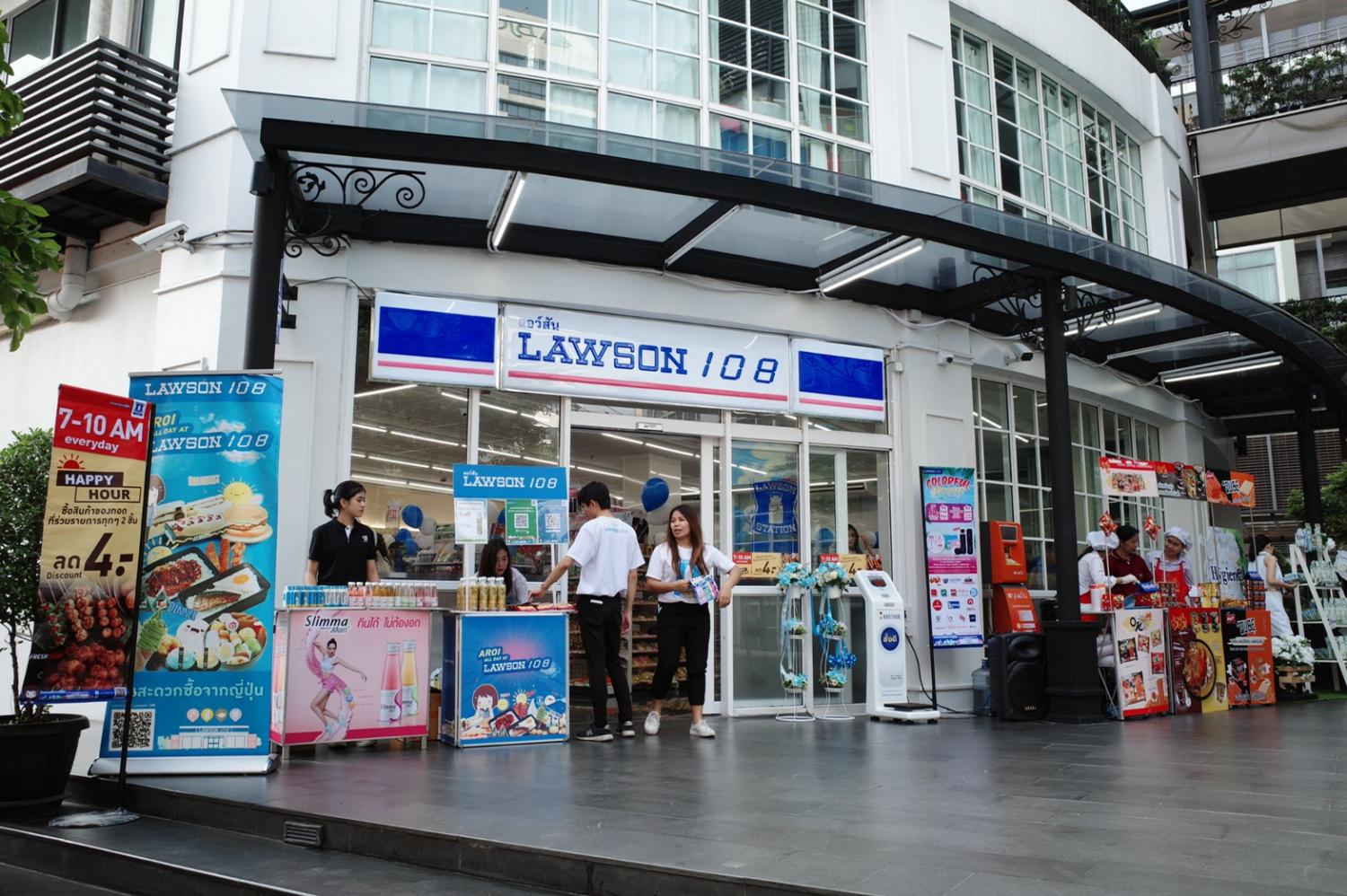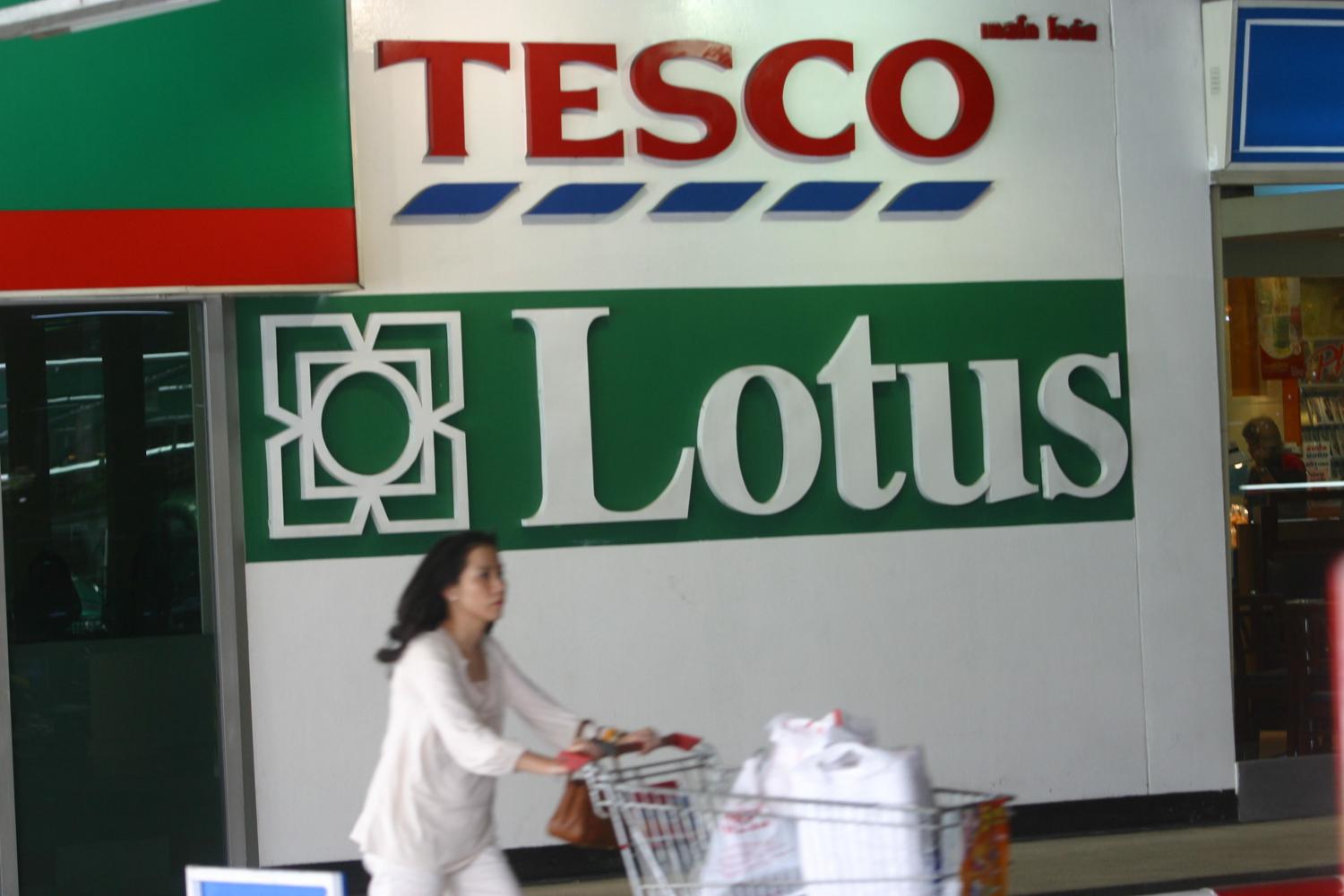
Efforts by foreign retailers to establish a presence in Thailand have faced an uphill climb.
The closure of Japan's Isetan and the sale of UK-based Tesco's Asian assets to CP Group are the latest evidence underlining the difficulty of sustaining business in the Thai retail market, where local giants have flexed their muscles to become the dominant players.
Isetan Mitsukoshi Holdings Ltd's Isetan Thailand announced that it would shut down Isetan Bangkok, its 28-year-old department store in Thailand, ahead of its lease with Central Pattana Plc expiring in December.
CentralWorld's operator, meanwhile, has announced that it will develop a new "urban lifestyle" destination to replace the Isetan department store, which will bring down the curtain this August.
The 27,000-square-metre area that houses the six floors of Isetan will be renovated, but the Japanese feeling and ambience will remain, according to a CPN statement. Isetan is far from alone in suffering from the painful truth of doing business here.
Two Japanese operators, Tokyu Department Store and supermarket chain MaxValu, vowed from the outset to expand aggressively in Thailand.

Aeon's MaxValu is a supermarket chain with locations around Bangkok. Up to 20 branches are scheduled to close. Pitsinee Jitpleecheep
But MaxValu, owned by Aeon Thailand, recently announced that it would shutter up to 20 MaxValu Tanjai mini supermarkets in Thailand by March 31, while loss-ridden Tokyu stopped its operations at Paradise Park on Srinakarin Road on Jan 31, 2019.
"Key factors compelling Japanese retailers to throw in the towel after failing to dig into Thailand's 3.8-trillion-baht retail market include the fact that market demand for Japanese products is relatively thin, while operating cost is high so they cannot make a profit," said Kitti Siripullopan, an associate professor in the marketing department at Thammasat Business School. "There are also limited consumer groups who favour Japanese tastes. Moreover, middle-income people can easily travel to Japan.
"In the case of Isetan, I have seen the well-known Japanese chain's effort to adjust itself by launching several premium Japanese restaurants in its supermarket zone to draw customer traffic, but the effort remains unsuccessful because Japanese restaurants in Thailand are in oversupply. We can find many good Japanese restaurants outside the shopping complexes, both stand-alone locations and in five-star hotels."
A retail guru who asked not to be named said Japanese retailers have come up short in Thailand because they often bring their own format and their own working culture.

A Lawson 108 convenience store. SEKSAN ROJJANAMETAKUN
"Their stores' decoration is very simple and minimal," the guru said. "There are fewer promotional campaigns by Japanese retailers, while there are almost 365 days of promotion from Thai retail stores.'' Negotiating power is also diminished because of limited branch numbers.
The Thai retail business revolution was led by Central Group over the past seven decades after the first modern department store opened in the Wangburapha area. Several local brands followed, including Taifa, Maew Dam and Nightingale.
Daimaru, the first Japanese department store, debuted with a branch in the Ratchaprasong area in the mid-1960s, providing new technology to the market and the first elevator, which drew excitement among Thais. Daimaru was the role model for Thai department stores of the time.
Driven by the success of Central Group, many department store operators migrated to the Thai retail market in the ensuing decades, but nearly all gave up at last because of fierce competition in the market.
In addition to Japanese retailers, Western retailers sought to tap Thailand's retail market, starting with cash-and-carry chain Makro of the Netherlands. Makro used its common foreign strategy of creating a joint venture with CP in 1988 before selling its whole stake to CP in 2013. Other Western retailers parading into Thailand included Auchan, Carrefour, Casino, Ahold, Food Lion and Tesco.
Big C, Tops Supermarket and Lotus were controlled by foreign retailers Casino Group of France, Ahold of the Netherlands and Britain's Tesco, respectively, but they gradually came under Thai helms.

A Tesco Lotus shopper in Bangkok. The chain, recently sold to CP Group, has 1,967 stores nationwide. Wisit Tham-ngern
Local dominance
Today, Thailand's retail business is largely controlled by three billionaire families: the Chearavanont, who have over 10,000 branches of 7-Eleven convenience store, plus Makro and Fresh Mart; the Sirivadhanabhakdi, who own 1,374 retail stores in various formats, including Big C Supercenter, Big C Market and Mini Big C; and the Chirathivat, who operate 1,205 retail stores via Tops, FamilyMart and Matsumoto Kiyoshi.
"Having Tesco's network under CP Group will definitely boost the overall retail sales of the group to about 700 billion baht, making up to 70.4% of the 994-billion-baht modern grocery store market,'' said Buppa Lapawattanaphun, a strategic communications lecturer at the University of the Thai Chamber of Commerce.
Assoc Prof Kitti said that with CP taking full control of Tesco, the Thai retail market landscape is expected to change, with fiercer competition anticipated.
All retail players are expected to come up with new business strategies to survive.
"No matter how the market competition intensifies, we expect overall consumers will still gain an advantage," Assoc Prof Kitti said. "In the case of the CP-Tesco deal, it's suppliers who will see more difficulties in negotiating power with CP Group."
Chalit Limpanavech, an adviser to the Marketing Association of Thailand, said that with CP Group controlling both downstream and upstream food products and all distribution channels for convenience stores, wholesalers and hypermarkets, suppliers no longer have bargaining power.
"Finally they will die," he said. "The government should issue a new law to support suppliers, particularly SMEs, who rely on Tesco Lotus and ensure that grocery store chains have a proper profit rate relative to sale price. Importantly, the law has to be seriously enforced and provide harsh penalties."
According to Assoc Prof Kitti, although the retail market in Thailand is controlled by a handful of big players, it still presents opportunities for small and mid-scale suppliers to survive if they adjust their product management and seek proper business models or platforms.

Isetan is scheduled to close its 28-year-old department store in August. Pitsinee Jitpleecheep